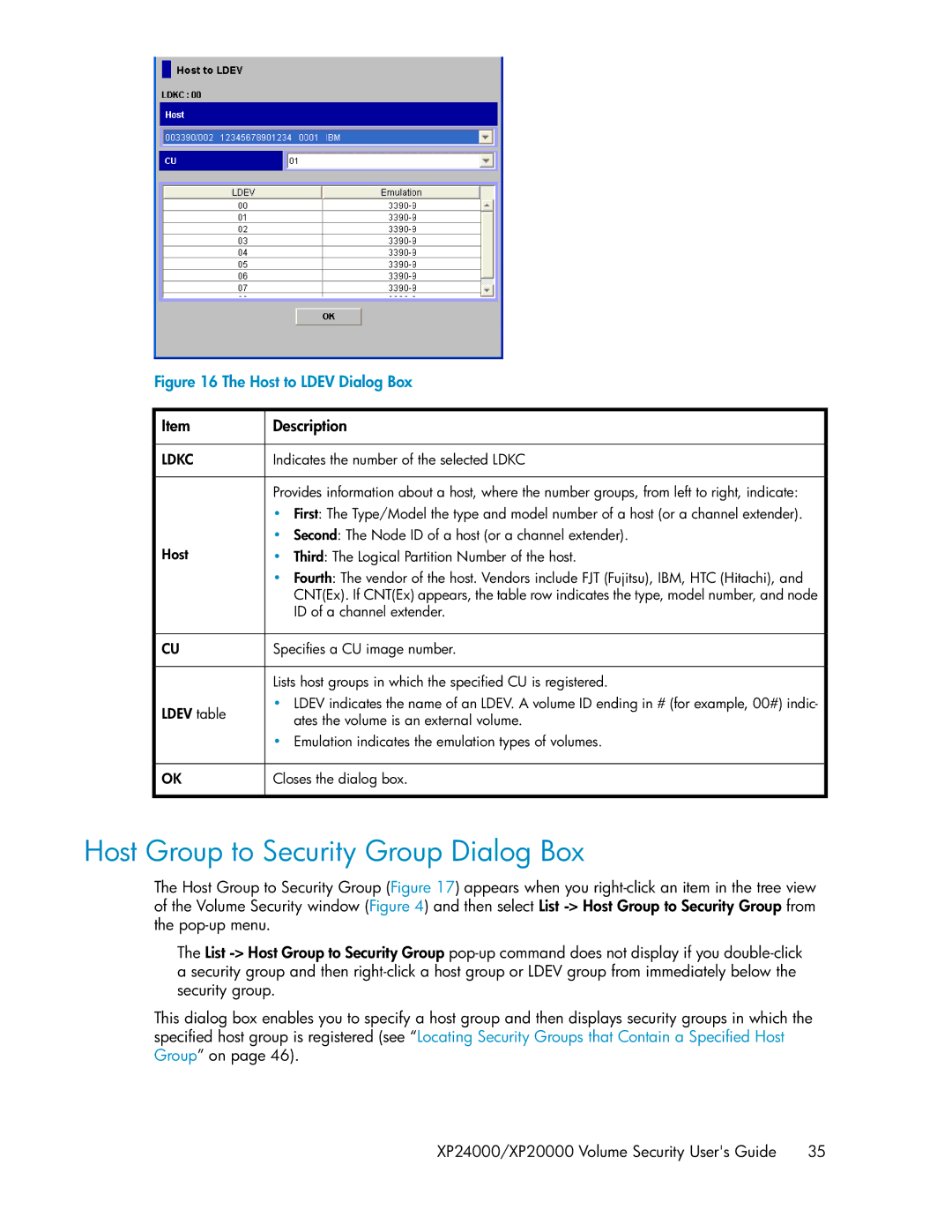
Figure 16 The Host to LDEV Dialog Box
Item | Description | |
LDKC | Indicates the number of the selected LDKC | |
| Provides information about a host, where the number groups, from left to right, indicate: | |
| • First: The Type/Model the type and model number of a host (or a channel extender). | |
| • Second: The Node ID of a host (or a channel extender). | |
Host | • Third: The Logical Partition Number of the host. | |
| • Fourth: The vendor of the host. Vendors include FJT (Fujitsu), IBM, HTC (Hitachi), and | |
| CNT(Ex). If CNT(Ex) appears, the table row indicates the type, model number, and node | |
| ID of a channel extender. | |
CU | Specifies a CU image number. | |
| Lists host groups in which the specified CU is registered. | |
LDEV table | • LDEV indicates the name of an LDEV. A volume ID ending in # (for example, 00#) indic- | |
ates the volume is an external volume. | ||
| ||
| • Emulation indicates the emulation types of volumes. | |
OK | Closes the dialog box. |
Host Group to Security Group Dialog Box
The Host Group to Security Group (Figure 17) appears when you
The List
This dialog box enables you to specify a host group and then displays security groups in which the specified host group is registered (see “Locating Security Groups that Contain a Specified Host Group” on page 46).
XP24000/XP20000 Volume Security User's Guide | 35 |
